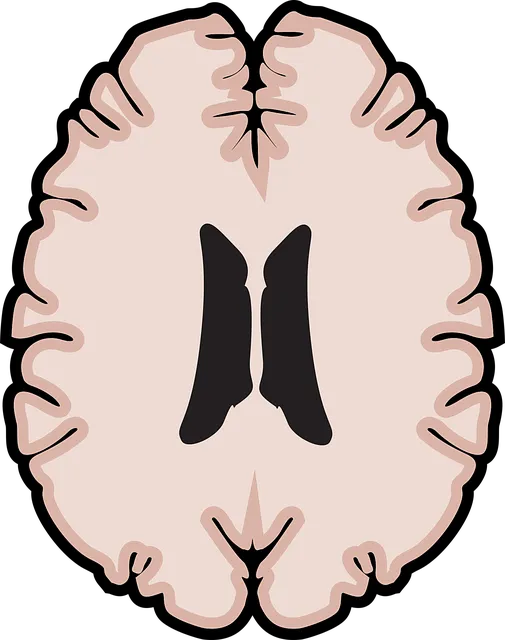The Englewood Kaiser Permanente Mental Health Center adopts a holistic approach, integrating positive thinking exercises like compassion cultivation and mindfulness to reduce stress and enhance emotional resilience for patients and staff. Through tailored programs utilizing techniques such as gratitude journaling, cognitive reframing, and stress management workshops, the center fosters optimism, equips individuals with effective coping mechanisms, and promotes lasting mental well-being. This holistic methodology shows promise in significantly improving patient care outcomes at Englewood Kaiser Permanente.
At Englewood Kaiser Permanente Mental Health Center, we’ve embraced positive thinking exercises as a transformative tool. This article delves into the profound benefits of integrating positivity into healthcare settings, drawing from our center’s experience. We’ll explore practical strategies to implement effective positive thinking programs, fostering an environment that enhances well-being and promotes healing. Discover how these exercises can revolutionize mental health care, offering hope and resilience to patients at Englewood Kaiser Permanente.
- Understanding Positive Thinking Exercises at Englewood Kaiser Permanente Mental Health Center
- Benefits of Implementing Positive Thinking in Healthcare Settings
- Practical Strategies for Effective Positive Thinking Exercise Programs
Understanding Positive Thinking Exercises at Englewood Kaiser Permanente Mental Health Center

At Englewood Kaiser Permanente Mental Health Center, positive thinking exercises are integral to their holistic approach to mental well-being. These exercises go beyond mere optimism; they are structured practices designed to cultivate a mindset that focuses on the positive aspects of life. The center offers various techniques, including compassion cultivation practices, which aim to enhance emotional resilience and reduce stress. By engaging in these activities, healthcare providers can not only improve their own mental health but also better support their patients.
Incorporating positive thinking into daily routines is a key component of burnout prevention strategies for healthcare professionals. The center recognizes that the demanding nature of the medical field can lead to exhaustion if unaddressed. Through these exercises, staff are equipped with tools to navigate stress, foster self-care, and maintain a sense of balance. This, in turn, allows them to provide more compassionate and effective care to patients at Englewood Kaiser Permanente Mental Health Center.
Benefits of Implementing Positive Thinking in Healthcare Settings

Implementing positive thinking exercises in healthcare settings, such as the Englewood Kaiser Permanente mental health center, can significantly enhance patient care and outcomes. Research has shown that cultivating optimism and gratitude can lead to improved emotional healing processes, reduced stress levels, and better overall mood management among individuals seeking mental health services. By incorporating practices like mental wellness journaling exercise guidance, healthcare professionals can empower patients to develop healthier thought patterns, fostering an environment conducive to resilience and recovery.
This proactive approach not only complements traditional therapy but also contributes to the holistic well-being of patients. Positive thinking interventions have been linked to enhanced mental wellness, enabling individuals to cope more effectively with challenges and leading to increased life satisfaction. By integrating these practices into care plans, healthcare providers at centers like Englewood Kaiser Permanente can ensure that patients leave each session feeling supported, equipped with tools for emotional resilience, and on a path towards sustained mental health improvement.
Practical Strategies for Effective Positive Thinking Exercise Programs

Englewood Kaiser Permanente mental health center offers practical strategies for effective positive thinking exercise programs that can significantly enhance well-being. These exercises are designed to cultivate a mindset focused on optimism and resilience, empowering individuals to navigate life’s challenges with greater ease. By incorporating techniques such as mindfulness meditation, gratitude journaling, and cognitive reframing, participants learn to reframe negative thoughts into more constructive ones, fostering self-esteem improvement and burnout prevention.
The center’s programs prioritize an individualized approach, tailoring activities to meet the unique needs of each participant. Stress management workshops, a cornerstone of these initiatives, teach effective coping strategies that promote emotional balance. Through engaging exercises and interactive discussions, individuals gain tools to manage stress effectively, enhancing their overall mental health and quality of life. This holistic approach not only targets symptom reduction but also fosters personal growth, ensuring participants develop lasting habits for optimal mental well-being.
Implementing positive thinking exercises, as demonstrated at Englewood Kaiser Permanente Mental Health Center, offers a powerful tool to enhance patient well-being. The benefits are clear: improved mental health outcomes, increased resilience, and a more optimistic outlook on life. By integrating these strategies into healthcare settings, professionals can foster an environment that not only treats symptoms but also empowers individuals with lasting coping mechanisms. With consistent practice, positive thinking exercises have the potential to revolutionize mental healthcare, leaving patients equipped to navigate life’s challenges with greater ease and a renewed sense of hope.
